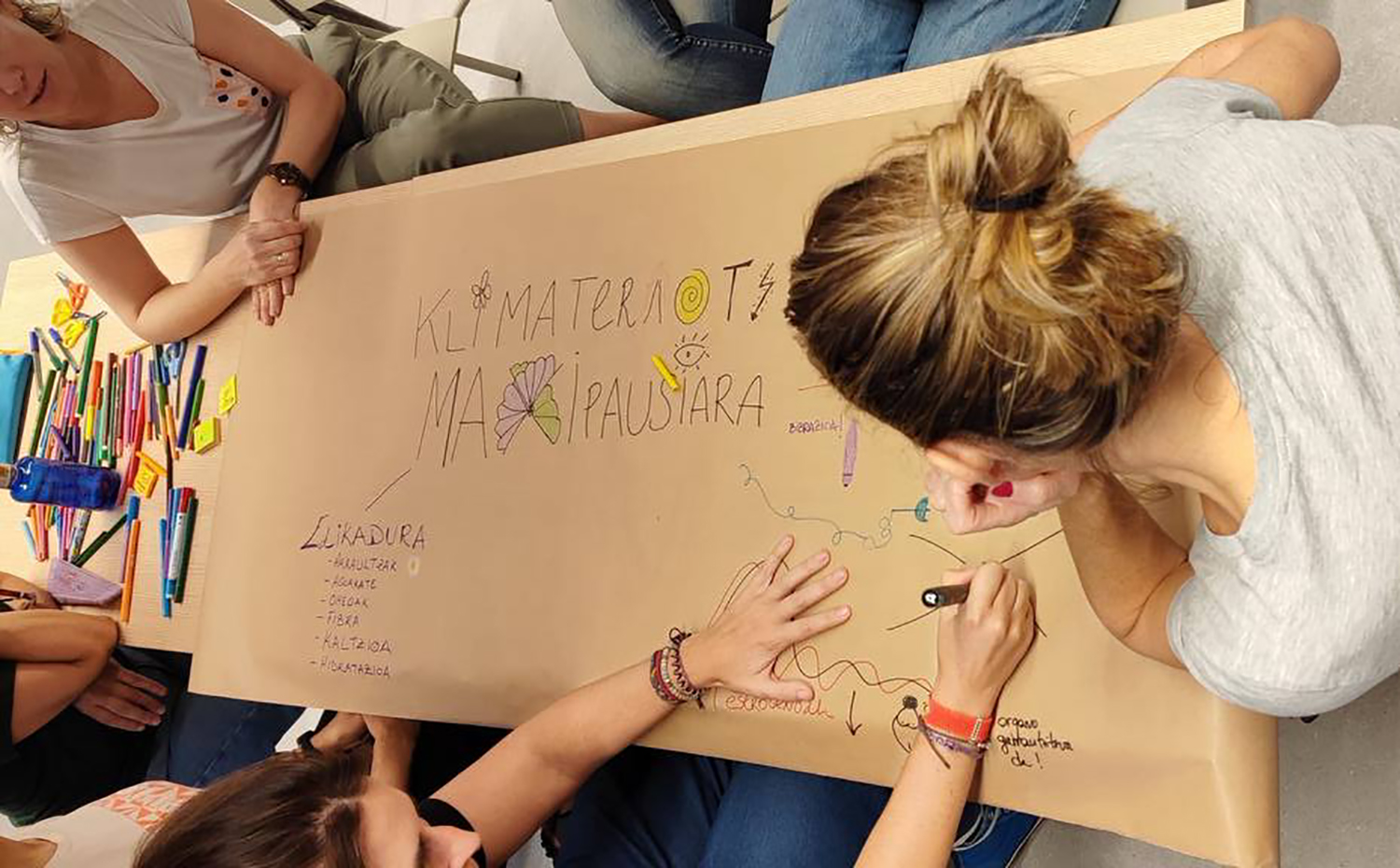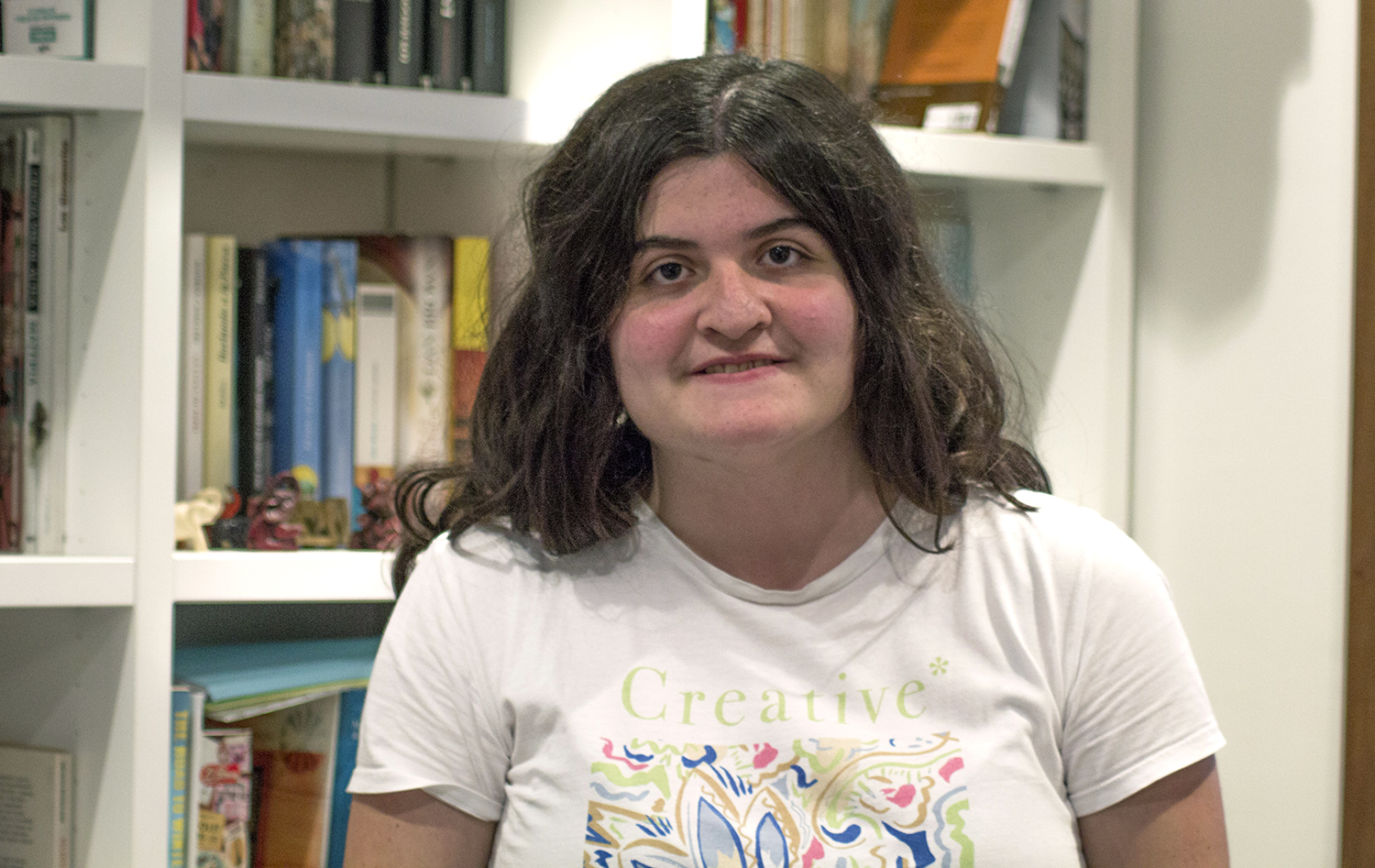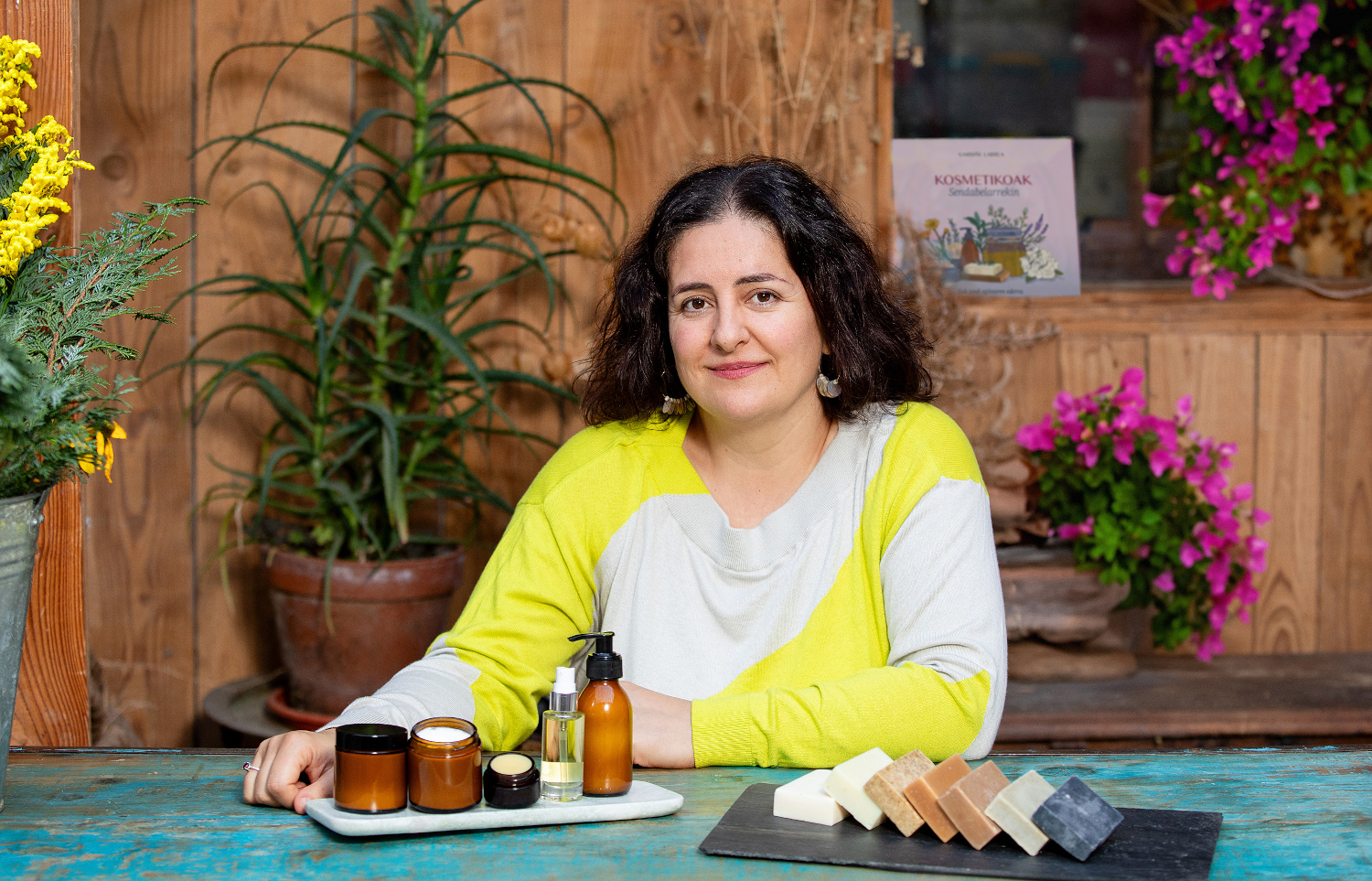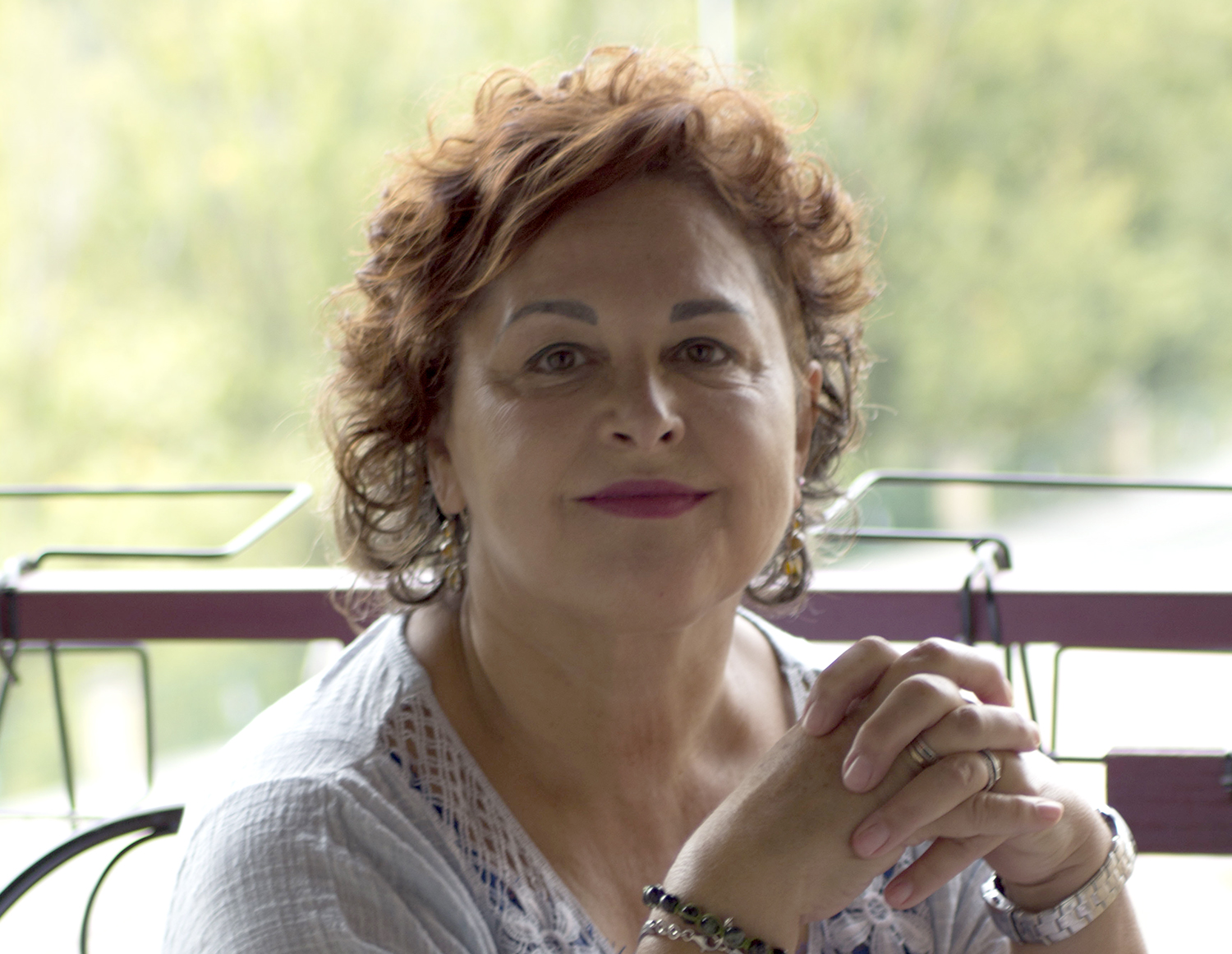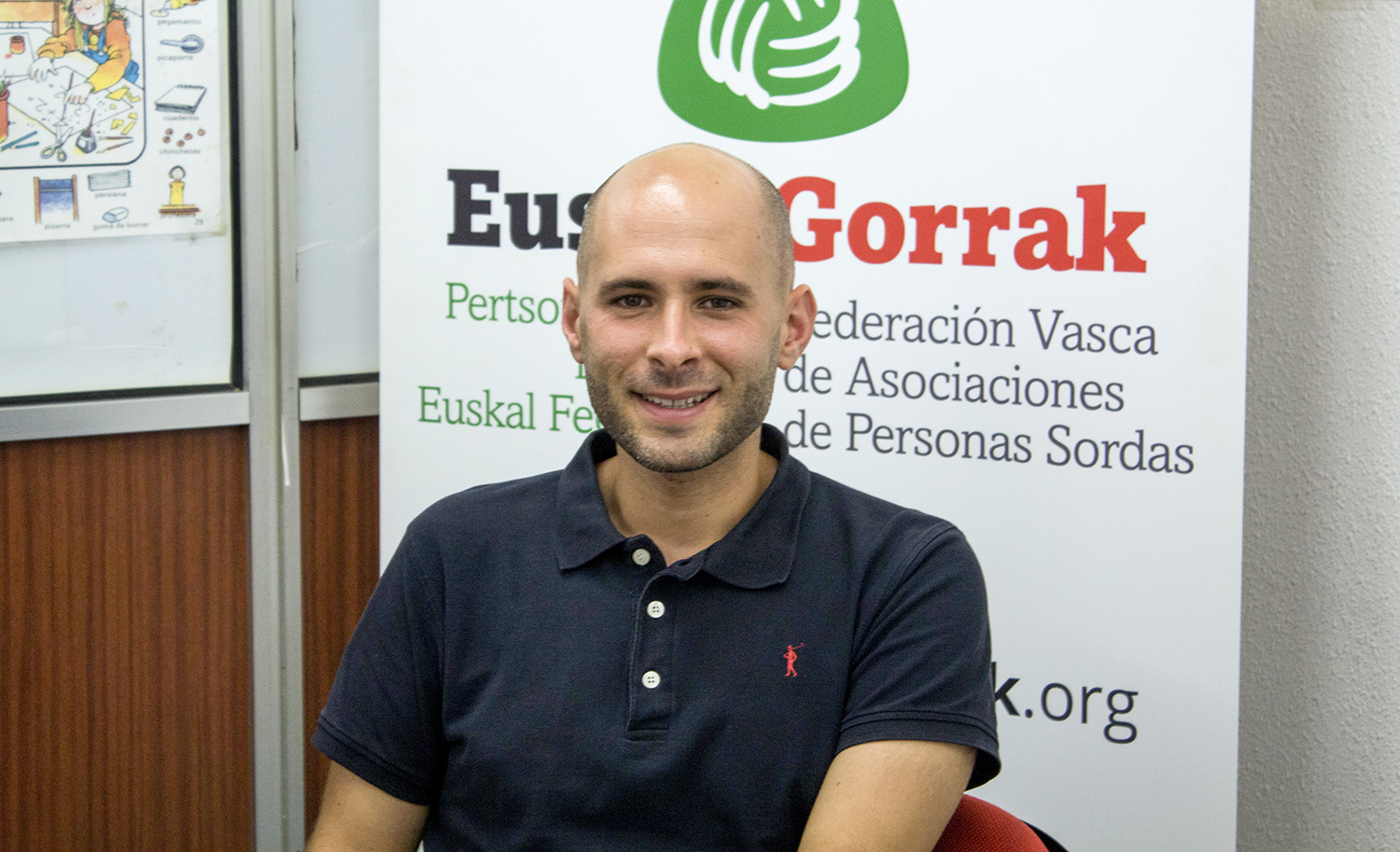Three generations, three stories
- Edurne Epeld, Miren Aranguren and Iratxe Retolaza have written the chronicle of the Feminist Movement of Euskal Herria. Every militant feminist can tell his story. We have asked the members of three generations to photograph us. Epelde and Aranguren, Anabel Sanz and Maite Axia have been asked six questions: the demands of their time; the institutionalization of the movement; the strength and prestige of the movement; in what society has advanced; and in what it has regressed.
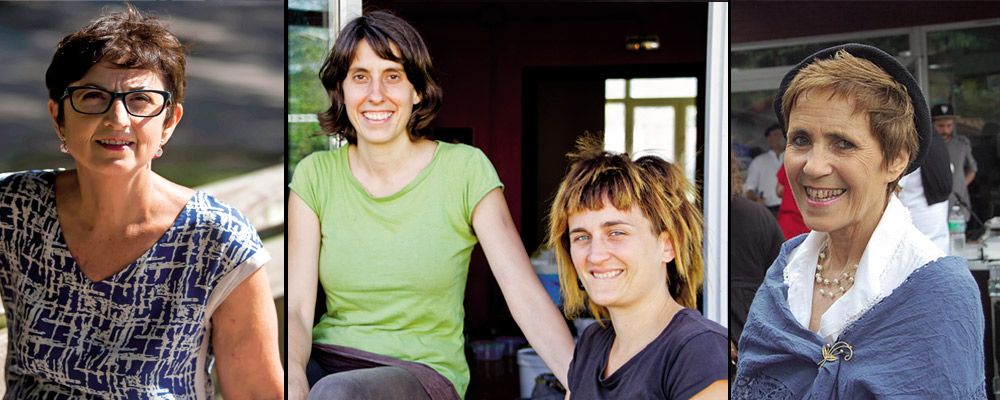
1 - What were the demands of your time?
Maite Axiari. I shall refer to the atmosphere of that time. I was 20 years old in 1968, and two years earlier, I went to Bordeaux to study. We were 21 years old and the students' residences weren't mixed, there were girls' and boys' houses on the one hand. The first revolt, in 1967, was to achieve mysticism. On the other hand, it should be remembered that the contraception pill became legal in 1967. The 1968 student movement began in France with these issues.
In addition, we demand the freedom of women in all areas: first, sharing household chores between families and friends. Secondly, to achieve economic autonomy: to choose our trade, to do studies ... Economic independence was very important for me and for most of the girls of that time -- even if we got married. In France, only after 1965 did the wives have the right to have their current account without the consent of their husband. That same year they got the right to choose a trade, to sign a work contract without the consent of their husband! Thirdly, we wanted to dominate, girls didn't want to live like our mother. Fourthly, at work we wanted salaries to be higher, and that is why we had to change the laws. Fifth, in free time: before, if women went out alone, it felt like a void unless there were men in the flock. It wasn't that good, it despised. We've changed that. Sixthly, the power of men appeared everywhere: in political groups, in trade unions. They were also power games between men, but especially between men and women. Men dealt more easily with positions, occupations. It is changing, but there is still to be done! Seventh, contraception and abortion: Thanks to the MFPF (Women's Movement and Family Planning), the pill was obtained legally in 1967. The law is one thing, but there was a lot of work to change the mindset of doing, to be free each in his mind, to choose when you're going to have a child or not. “Our body is ours,” we said, and we also claimed the right to abortion.
Anabel Sanz. The Basauri movement was very strong and I got really excited, absolutely fascinated, as soon as I started high school. In adolescence, the agitation of hormones, the message, attitude and discourse about the body and sexuality seemed terrible to me. Sexuality has been an unforgettable subject.
Work and the sexual division of work have been long-standing issues. The use or care of time, despite being topics of our time, remain a priority today. Male violence, abortion, feminist solidarity, sexual diversity, identity and the subject of feminism have been on our agenda forever and ever.
Look at Aranguren and Edurne Epelde. When we started, the way we expressed it was in defence of women’s rights. The World Marches of Women were a very useful tool for claiming rights. It has focused on poverty and sexist violence, which have also been the basis of our action. Pulling away from poverty we have had the opportunity to talk about the situation of the baserritars, the feminized work, the situation of young people, the incidence of migration, the crisis of care… As with violence, we have worked together (not as a home) and we have worked on the alternative: feminist self-defense. We started denouncing killings on the street, for example, thanks to the World March.
2 - What do you think about the institutionalization of the movement?
Maite Axiari. If in 1981 Socialist Mitterrand was elected President of France and there was hope in the movements on the left, I thought things would change more easily with the Socialists. On the other hand, we spend a lot of time in militancy and leave a little bit of movement.
At that time, the Ministry of Wives ' Rights was established and that official status could change the situation of wives. This, in my view, has been able, on the one hand, to strengthen the rights of wives throughout society, but, on the other hand, it has not sufficiently supported the movement of the freedom of wives and has been gradually reduced.
Anabel Sanz. It has been very evident: what feminism has proposed the institutions have taken it for themselves and, once urardosed, they have turned it into equality.
The situation is not always the same, and the technical and political point of view is in dispute. At the CAV, at least, feminism has been and is technically evident. But that doesn't mean that they follow us politically. For example, Emakunde, the Ararteko and the Gipuzkoa Foral Council of the last legislature have joined Hondarribia’s mixed alarming annually, but the Emakunde party, the PNV, supports the traditional alarming.
Another example is shared custody. Despite Emakunde's statements, they do not serve at all, either in general or in his party. Feminism is on the party agenda when it suits them. However, feminism has made it clear that it is possible to change things.
Look at Aranguren and Edurne Epelde. From the beginning it has been an important issue in Bilgune Feminist. We do not have a common account of what has happened in recent years. Is it not about the institutionalization of feminism, but about feminism with public institutions? Will we participate in the municipal councils? Institutionalization has had its advantages and disadvantages. In the 1990s, institutions gained importance and the feminist movement emptied itself with militants. The feminist who works in the organization does not have the freedom that the feminist group has. Very interesting things have been done about public institutions, and they cannot be left entirely to one side. In some towns it was very easy not to go to the municipal council and in others it was not so easy. We have had to adapt.
The professionalization of feminists has led to the creation of a new category: Skilled and non-skilled feminists “who know” and “do not know”. It has become a trade. The first feminism was from the street and has now spread to more spaces. All right, but he's losing the street.
3 - How does force work?
Maite Axiari. Fortunately, some young people have created several associations and know that from now on they will have to work for the rights of wives.
However, we are aware that, although the movement has not existed as before, its wings have not been cut off. If something happens, it can happen right away. For example, this year the French Minister of Labour wanted to amend a law: every year every company has an obligation to make a diagnosis of the working conditions of men and women and the current minister wanted to remove that obligation. The minister who participated in this law has alerted people via the Internet and has collected signatures immediately.
Since 2000, we have organized small activities with the Women's Collective of the Basque Country.
Anabel Sanz. The feminist movement in Euskal Herria is alive and very strong, and that of the State too. But ours is at the top, at the moment there are many options to form. Maybe the place of training has changed, in my time we only had feminist groups. Today, there are master's degrees, empowerment schools, etc. Learning and knowing feminist theory is important, but it's much more important to be clear that political activism is fundamental.
In addition, different people have appeared, consumers of feminism (or solidarity, environmentalism…), they go to the talks, and if it comes well to a demonstration… But they are not in groups and they do not have in their heads how to change things. That attitude worries me.
In general, many things are being done, nice and very political: the most recent are the Klitto project, body graphs, discussions among feminists, the World Women’s March, the people of Alternatives, etc. I hope the next one, be the Feminist Encounters of Euskal Herria.
Look at Aranguren and Edurne Epelde. I don't know if we're more or less than before, but the new generation comes very strong. Training is developing a lot. Consumer feminism worries us. We are training, receiving, learning… is feminist intelligence OK, but is it not carried out in practice? To begin with, at our time, hunger was among the less and we were much more self-taught: to pass the report and discuss it among all. We had more head in practice.
4 - Do you have prestige?
Anabel Sanz. I do not think we have achieved much prestige. After all, feminist genealogy is not supported.
Look at Aranguren and Edurne Epelde. Feminism has gained authority. The feminist claim is at the center of the main demands of social movements, the gender perspective is important in academia, there are feminist studies, from education, from the media we are called feminists. We had to go before.
Since we began, it has given an incredible young man. The change has occurred above all in the women we had as allies. We have made Bertsolaris women, artists, athletes aware. Everyone acts from their field. The first door was locked.
5 - What progress has been made?
Maite Axiari. In many ways, I'm not going to name them all. First of all, machismo becomes more disregarded in society. Secondly, the economic independence of women. Thirdly, the rights to life alone. Fourthly, the rights of homos and lesbians. Fifthly, quotas have been set in policy.
We have changed laws for contraception, for abortion, for politics, for work… but they must be retained and improved.
Anabel Sanz. In many things, for example, laws, but they're not enforced. Public policies, but they are not on the agenda of those who govern, or they are not a priority, because otherwise something else would be done against male violence, for example.
Look at Aranguren and Edurne Epelde. Feminism, as ideology and as a political project, has more and more space in the construction of a different society. We have a very long road, but we have managed to turn the tortilla around; in 1990-2000 feminism was not necessary for anyone, we were outmoded, out of context. We have become more aware of the rights that women have. We are not content with the destiny of patriarchy. We are increasingly placing our interests on the agenda.
In any case, it is very difficult to say what we are moving forward and what we are going back on. The movement has made clear progress. It's harder to tell whether society has advanced or not.
6 - How has it been restored?
Maite Axiari. Violence has not diminished and can spread. On the other hand, not everyone realises that the lives of women have changed and improved in some respects, and young people do not know how they have changed. So it's important -- our feminist genealogy holds the book in hand -- to do this. Thank you to all those who have written this book. Girls live with more freedom, but if they don't grow and care for that freedom, they can lose. Fortunately, when you've tried freedom, you don't want to go back!
Anabel Sanz. One problem is the mirage of equality, laws and public policies give the impression that more is being done than is actually being done. But the biggest problem is undoubtedly the new machismo, there are men who are very angry that they have lost some of the privileges of always and are organizing to attack us.
Speaking of male violence, we have made progress in some respects, but it has been many years since the public policies of equality were put in place and the aggressions and murders have not come down. However, the social perception is that too many resources are used.
Look at Aranguren and Edurne Epelde. Sexism. Feminism says that man has to break the dichotomy and boys are more boys and girls than ever before. More rare and blue catalogs than ever. It is a clear indicator of setback. For example, that “look at me” of today’s young girls. At 4 years old, girls have mother's clothing.
We've been led to believe that we're free, but is it? A couple of examples. Before the woman could not enjoy sex, but now we have to be able to get eight orgasms! Is that free? We have the opportunity to work outside the house, but many women feel bad because they don't have time to clean the house. Are we free? We have moved forward and backwards. Today ' s women have some possibilities, but in return for them they also have other difficulties. And another example: put on your pants calmly, but with your ass in the air, you'll have to have a cold.












